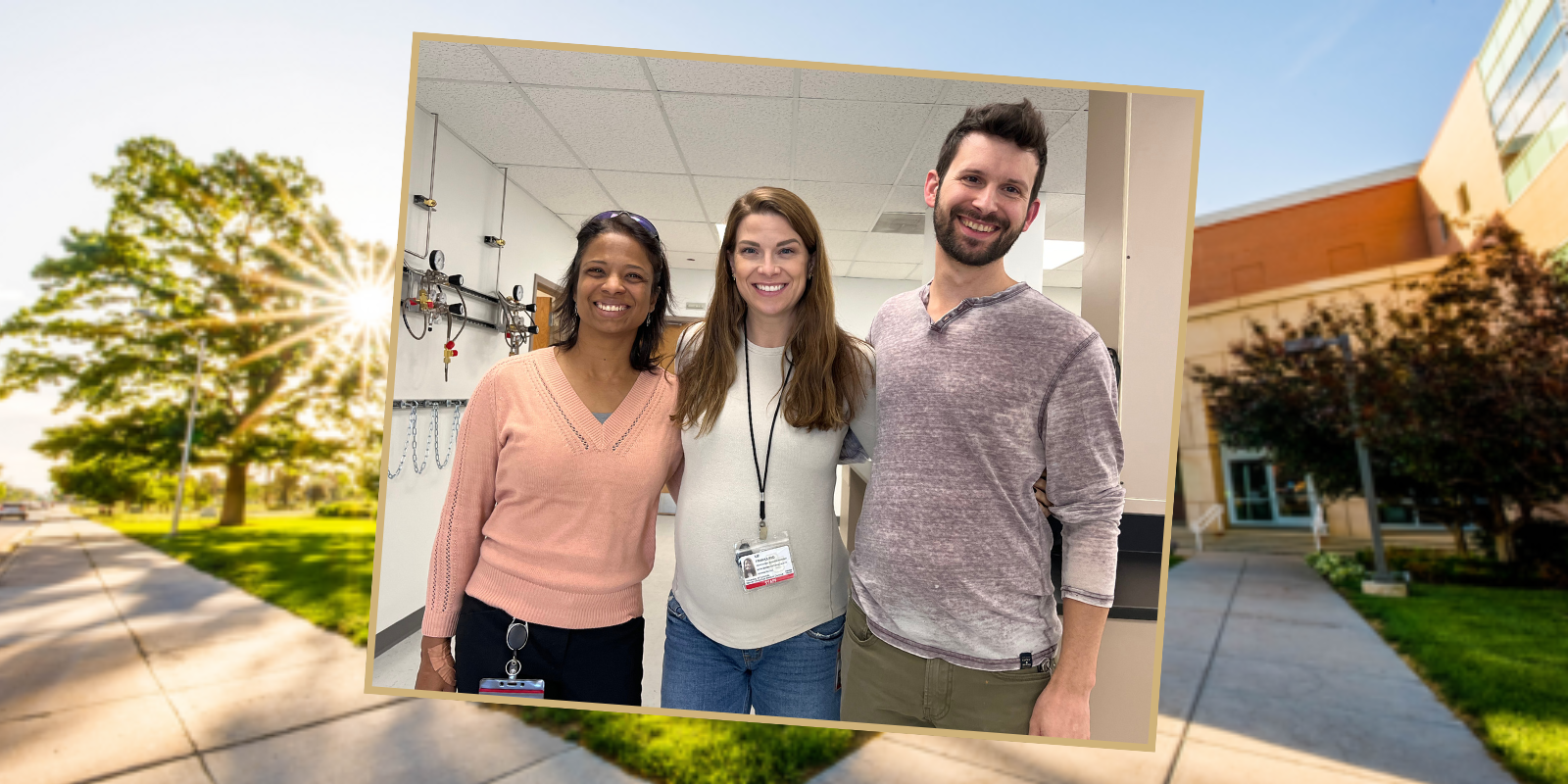When Gates Institute and CU Anschutz Department of Orthopedics faculty members Karin Payne, PhD, associate professor, and Mike Zuscik, PhD, professor and Orthopedics Research Vice Chair, were notified that their team’s research to develop therapies to reverse osteoarthritis had been awarded major funding from the Advanced Research Projects Agency for Health (ARPA-H), they reflected on the years of collaborative work that had led them and their colleagues to this point.
“We immediately thought of the Gates Grubstake Fund,” Zuscik said. The early-stage funding was awarded in 2017 to Payne and her co-principal investigator Stephanie Bryant, professor in the Department of Chemical and Biological Engineering, Materials Science and Engineering, and the BioFrontiers Institute at CU Boulder. The award for their project to develop a bioresorbable 3-D printed implant for cartilage regeneration “really sparked the momentum for work on technologies that became pivotal for this new project.”
Then, in 2020, Zuscik and Payne partnered on a follow-up Grubstake-funded project to further develop an injectable drug to target osteoarthritis that Zuscik has been working with for over 15 years. “The goal of both projects was to regenerate cartilage,” said Payne. “The Grubstake funding helped us develop the technologies and test them in small animal models, and we can now keep building on the technologies through the ARPA-H funding.”
The Gates Grubstake Fund, which was established in 2015, provides awards of up to $350,000 to investigators researching and developing regenerative medicine-related technologies; this focus is synergistic with the Novel Innovations for Tissue Regeneration in Osteoarthritis (NITRO) program, offered through ARPA-H, an agency within the Department of Health and Human Services.
These technologies will be leveraged to create a “suite of noninvasive therapies,” said Bryant, project lead for the multidisciplinary team, which also includes Laurie Goodrich, DVM, professor and director of the Orthopaedic Research Center in the C. Wayne McIlwraith Translational Medicine Institute at Colorado State University.
But the support from Gates Institute, of which all four researchers are members, goes beyond the seed money received to develop cartilage-regenerating technologies.
“The complexity of developing these technologies to translate to humans cannot be overstated,” said Zuscik. “We would need to have GMP (good manufacturing practice) grade materials so we can embark on human studies. That’s no small feat when you think of the chemistries.”
Matt Seefeldt, PhD, executive director of the Gates Biomanufacturing Facility (GBF), wrote a letter of collaboration in support of the project. He concurred that the chemistries involved in the suite of products are complicated.
“The GBF is particularly suited to develop the processes to support this product as we have both microbial-based clean suites for protein production as well as cell therapy suites that can accommodate gene-modifying viruses with appropriate cross contamination controls,” he said.
The team also conferred with Gates Institute Executive Director Terry Fry, MD, who wrote a letter of collaboration and readily offered the institute’s support, beginning with process/analytical development and clinical trial protocol establishment to patient safety oversight and manufacture and release of an investigational product for the proposed studies.
Fry, a pediatric immunologist immersed in chimeric antigen receptor (CAR) T-cell therapy, brings a wealth of experience in the clinical translation of cell- and gene-based therapies into clinical trials. The institute he now leads has been conducting cell therapy trials for cancer with products manufactured at the Gates Biomanufacturing Facility since 2018.
Photo at top: The project's co-investigators are a multidisciplinary team, representing University of Colorado Boulder, CU Anschutz and Colorado State University. From left: Laurie Goodrich, DVM, from CSU; Karin Payne, PhD, and Michael Zuscik, PhD, from CU Anschutz; and Stephanie Bryant, PhD, from CU Boulder.

-2.png)

%20for%20children%20and%20young%20adults%20with%20relapsed%20or%20refractory%20solid%20tumors.%E2%80%9D%20(1)-1.png)